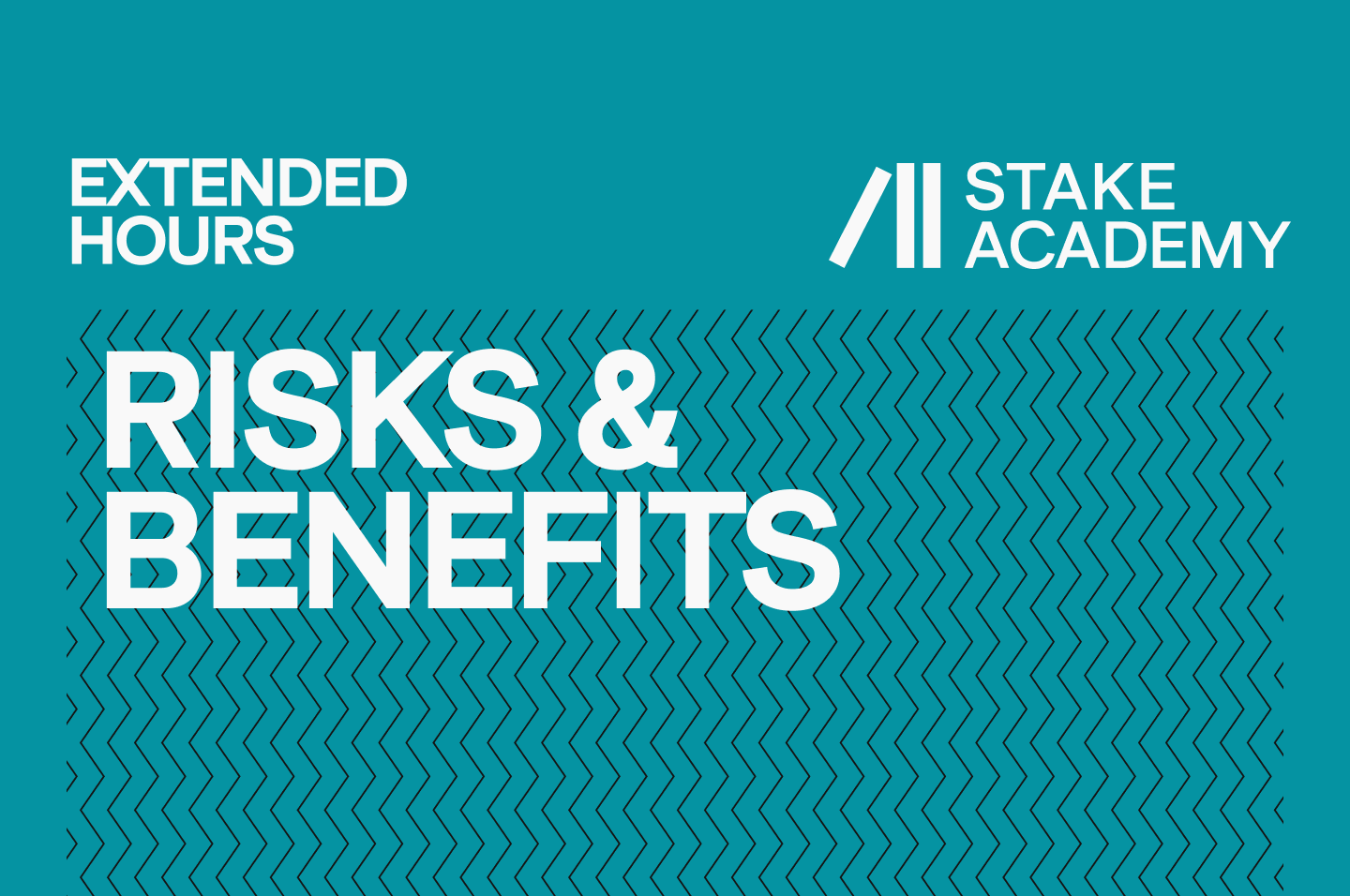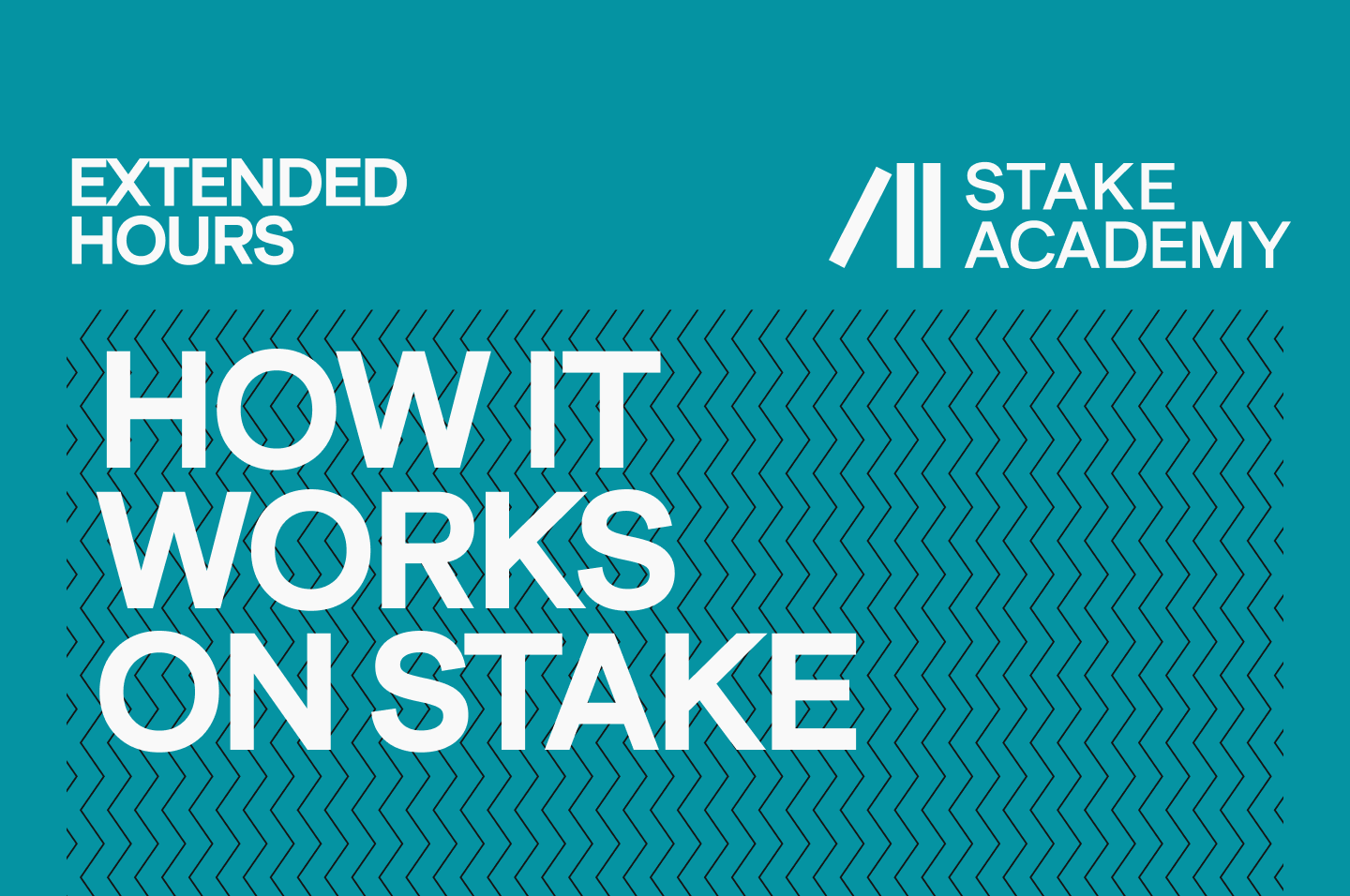
What are the risks & benefits of Extended Hours trading
Trading Wall St pre-market and after hours is seamless, but there are some important distinctions to be aware of before jumping in.
Extended hours trading allows investors to react quickly to events and place trades at their convenience – but the majority of trading activity still happens during the regular hours. Having less liquidity around during pre-market and after hours does affect how things work during these sessions.
Risks
Since investors tend to be less active during Extended Hours, this leads to lower trading volumes, less liquidity and wider spreads between bid and ask prices for stocks. Trades are executed by Electronic Communications Networks (ECNs), and large institutional investors and the usual market makers aren’t there.
Due to this lower level of activity, volatility levels can be higher than during the day. Reactions to earnings news or particular events can cause significant changes to share prices during these periods. Investors can face situations where the differences between buying and selling prices for shares are greater than during regular trading hours.
Benefits
Extended trading hours enable investors to react quickly to the latest news affecting the general stock market and individual shares. Company earnings are usually released after hours, and businesses often operate across multiple time zones. In such situations, investors can trade quickly to capture gains and prevent losses before the wider market moves.
The additional sessions also give investors more time to buy and sell shares. There’s no need to rush investment decisions or feel that trading opportunities are limited to regular market hours. Investors also often have responsibilities that keep them away from their trading platforms for hours at a time.
Investors interested in the U.S. but investing from certain time zones may also benefit from extended hours. On the east coast of Australia, for instance, the main trading session for U.S. stock exchanges usually converts to 11:30pm - 6:00am. In this case, the 5.5 hours before that (pre-market) and 4 hours after (after hours) mean there’s no need to stay up late or wake up extra early to participate in real-time investing.
Those active during the extra sessions could seize additional opportunities. In one example, Levi’s ($LEVI) stock declined 6% in extended trading after the firm lowered its forward-looking earnings guidance on 7 July 2023. On the other hand, Nvidia’s ($NVDA) share price soared 24% in the after hours period when it released positive first quarter results for FY2024, on 24 May 2023.
Extended Hours enable investors to act ahead of wider market movements and take advantage from shifts in share price values. But as always, it’s important to stick to an investment strategy and keep the risks in check.
Extended Hours carries additional risk and may not be suitable for all investors. Read our Risk Disclaimers and Terms and Conditions.

Sam is a product marketing specialist at Stake with 6 years of finance experience in Australia. With a Bachelor in Business from the University of Technology, Sydney, he specialises in product marketing and communications strategy. Previously, he has worked in the home lending and retail banking sectors with experience in customer success, marketing and product at Mortgage Choice and Ubank (formerly 86 400). At Stake, Sam helps manage the launch of new products and features whilst also focusing on marketing campaigns that help improve the Stake experience.

